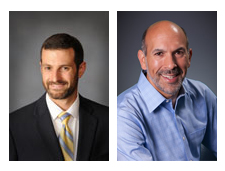Conflict is inevitable in policy debates. An outside facilitator can help forge agreement.
The Founders of our country told us that we should have a more perfect union, they did not say we have to agree on everything. And yet, a more perfect union is a union that is built based on relationships, centered-around trust and doing the right thing.
With 54 new lawmakers in the Michigan Legislature, relationships and trust will be difficult but not impossible to build. However, each one comes to Lansing with their own agenda and their own ideology, and in today’s political arena politics generally trumps policy. Trust is also being rebuilt in places such as southeast Michigan ‒ now that Detroit has emerged from bankruptcy, the M-1 Rail streetcar line is underway, the Detroit Institute of Art’s assets are protected and the Cobo Center convention facility is celebrated.
These projects prove that avoiding politics as usual is possible by governments collaborating and working together. However, public policy disputes have the potential of polarizing communities with the effect of delaying important decisions on vital issues of public policy, often resulting in diluted policies or no action at all. As a result, policymakers tend to avoid controversial issues or postpone crucial decisions hoping to avoid conflict.
For years, elected officials in Washtenaw County talked about the county’s growth as issues related to traffic and road congestion grew into problems. After a countywide initiative failed a few years ago, the Ann Arbor Area Transportation Authority (AAATA), which operates public transit in the Ann Arbor-Ypsilanti area, convened regional stakeholders last year to identify a reasonable and realistic solution to the county’s congestion problems. After a series of meetings over a year, the regional stakeholders supported a proposal to take to the voters for approval that would create an urban transportation strategy and expanded service throughout the county.
Last year, voters in Washtenaw County overwhelmingly approved the millage and today the AAATA is implementing an urban transit strategy with plans to support communities throughout the region. Voters approved the millage in part because it was needed, but also in part because the government leaders in Washtenaw County identified a problem and worked together to find a solution.
Easing path to solutions
Facilitation helps resolve high-profile policy disputes and finds resolution through controversy and clarity amidst chaos. The AAATA took its time to ensure each government leader understood the proposal and had the opportunity to comment on them and seek the comments of others. AAATA officials met with government leaders one on one and in facilitated meetings by members of the Government Task Force (GTF) of the State Bar of Michigan’s Alternative Dispute Resolution Section.
AAATA Strategic planner Michael Benham notes that “facilitation of those Urban Core Working Group meetings moved us positively through a very sensitive time, and the outcomes could have been quite different without the GTF’s involvement.”
Utilizing a neutral third-party meeting facilitator offers several advantages. It provides structure for meetings, enabling all participants to be heard without conversations straying too far afield from the topics under consideration. It also takes the politics out of the conversation to help the parties focus on the policy implications of the issue.
Facilitators kept the discussion focused on the issues, while the AAATA provide critical data and expertise without their efforts being viewed as advocating for one outcome versus another. The facilitators “allowed each mayor, township supervisor and city council member to come to the table from their own vantage point and participate in a discussion that is productive, leading to solutions in an area that this community has been talking about for decades without resolution,” said Pittsfield Township Supervisor Mandy Grewal at the conclusion of the process.
Conflict among lawmakers and regulators is inevitable. However, carefully structured dialogues, mediated or facilitated by skilled third-party neutrals could offer a more effective and durable method to resolve conflicts and build consensus around controversial and often complex public policy issues.
The successful outcome in Washtenaw County proves that government works best when government’s works together. With a new water authority, a new border crossing, algae concerns in Lake Erie, concerns over pipelines, and a growing list of distressed governments, third party neutral facilitators can be an enormous asset in ensuring high quality collaborative governance, and the chance to move beyond difficult issues to help our region and our state move forward.
Daniel Cherrin is an attorney and public relations professional with North Coast Strategies and former Press Secretary for Detroit Mayor Kenneth Cockrel, Jr. Brian Pappas is a mediator and associate clinical professor of Law at Michigan State University’s College of Law.
See what new members are saying about why they donated to Bridge Michigan:
- “In order for this information to be accurate and unbiased it must be underwritten by its readers, not by special interests.” - Larry S.
- “Not many other media sources report on the topics Bridge does.” - Susan B.
- “Your journalism is outstanding and rare these days.” - Mark S.
If you want to ensure the future of nonpartisan, nonprofit Michigan journalism, please become a member today. You, too, will be asked why you donated and maybe we'll feature your quote next time!


 Daniel Cherrin and Brian Pappas
Daniel Cherrin and Brian Pappas